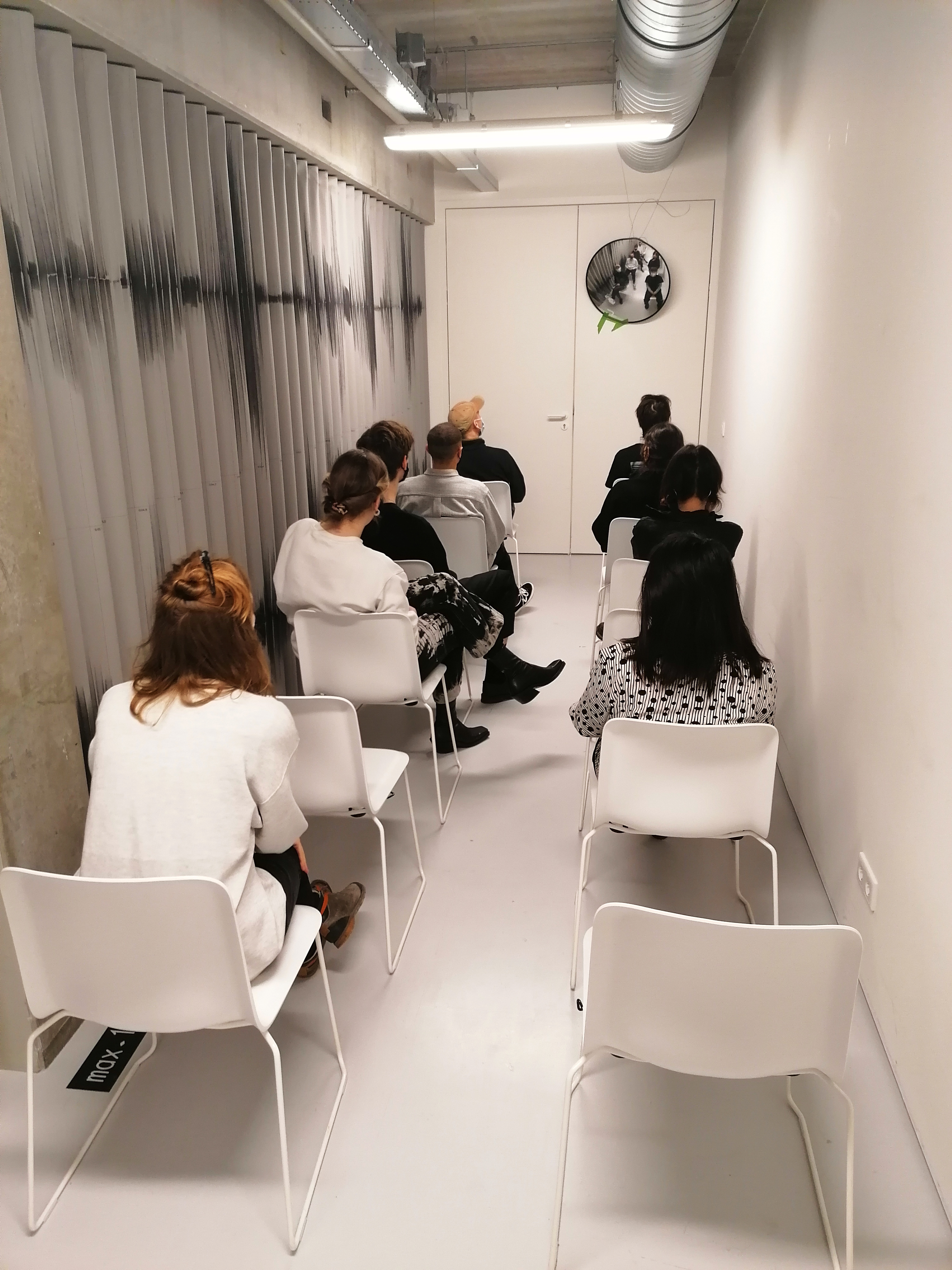WHAT
A workshop that explores –through an embodied approach– how the design of public transport shapes our freedom of movement and reproduces specific norms and ideologies. Through a series of deep listening exercises, performative actions and reflection, the effects of borders as material and conceptual realities are investigated.
WHY
From the gates, ground lines, ticketing systems, fire alarms, and lights, the spaces of transit unfold a complex system of devices that structure the behaviours within it. By tracking, guiding and orienting flows of people, these objects exert forms of soft and hard control. They distribute bodies in space and define areas of contact or separation. This creates not only divisions and power relations, but areas of public gathering that define what is understood as male and female, national and foreign, trustworthy and suspicious and free and unfree.
HOW
Through studying the interaction of the body and space, the participants are asked to observe, analyse and reflect upon their and others experiences. For this, participants are invited to position their body as a research tool, using play, embodiment, and the re-enactment of (un)written social rules to deconstruct social behaviour.


